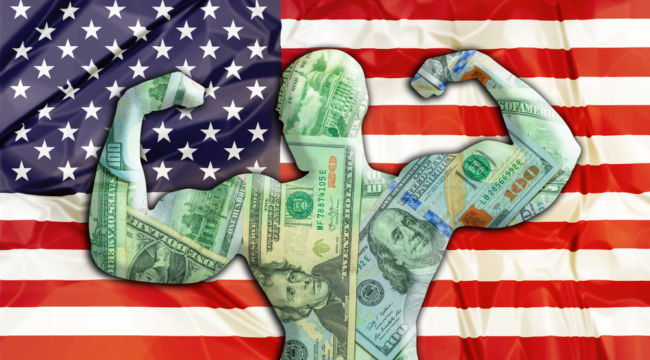Don’t Mess With the U.S. (Financially)
by Jim Rickards, Daily Reckoning:

I’ve been documenting financial warfare in my articles for years, but it still doesn’t get the mainstream attention it deserves.
Because as you’ll see below, it can directly impact your wealth.
Financial warfare tools include account seizures and freezes, expulsion from global payment systems, secondary fines and penalties on banks that do business with targeted entities, embargoes, tariffs and many other impositions.
These tools are amplified by the unique role of the U.S. dollar, which is the currency behind 60% of global reserves, 80% of global payments and almost 100% of transactions in oil.
The U.S. controls the banks and payments systems that process dollar transactions. This leaves the U.S. well positioned to impose dollar-related sanctions.
Much has been made of the recent killing of Iranian terrorist mastermind Qasem Soleimani. Many say it was an act of war. But guess what, folks?
We’ve been in a full-scale war with Iran for two years now. It’s just that most people don’t realize it.
It’s not a kinetic war with troops, missiles and ships (except Iran’s use of terrorist bombs and the U.S.’ use of drones). And it’s severely damaged the Iranian economy, which has led to protests against the regime.
From the U.S. side, it’s a financial war. People need to stop thinking about financial sanctions as an extension of trade policy, for example.
This is warfare. It’s just a different form of warfare.
It’s critical to understand that financial war is not a sideshow. It may actually be the main event in today’s deeply connected and computerized world.
North Korea is also the current target of a U.S. “maximum pressure” campaign, where harsh sanctions are applied to a wide range of banks, companies and individuals.
As with Iran, sanctions have been instrumental in destabilizing the regime and bringing North Korea to the bargaining table to discuss its nuclear weapons programs.
Now, Iraq is the latest country to feel the sting of U.S. dollar sanctions.
Following the killing of Soleimani on Iraqi soil, Iraq threatened to expel all U.S. troops from Iraq. Trump answered in two parts.
He said U.S. troops would not leave until Iraq repaid the U.S. for building bases and other infrastructure in Iraq. Trump also warned that Iraq’s access to its account at the Federal Reserve Bank of New York could be terminated.
That would make it impossible for Iraq to purchase and sell oil in dollars. It could also cause Iraq to lose access to about $3 billion currently held in that account.
Iraq has heard the U.S. threats loud and clear. As of now, U.S. troops are still in Iraq and not planning to leave anytime soon.
The fact that Iraqi policy could be conditioned without a shot being fired shows the raw power of financial warfare.
The trouble is private businesses and investors can get caught in the crossfire of financial warfare.
According to one survey, last year saw a 42% increase in cyberattacks on private companies around the world (attributable to foreign governments).
Read More @ DailyReckoning.com
Loading...



